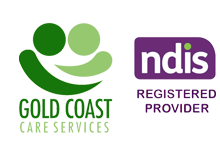As it becomes increasingly clear that inclusivity is the name of the game in business, more and
more companies are booking staff in for inclusivity training, including how to handle people who
are disabled. Their goal is to make an environment which is welcoming and inclusive, and one
which takes the accessibility challenges of disabled folks into consideration. After all, the future
of any company is often tied directly to its reputation, and so any organization which wishes to
flourish needs to make inclusivity a key part of their decision-making process.
Training of this kind is typically outsourced for the benefit of getting an external perspective and
ensuring that all training criteria are met. However, there’s one group of people who are best
qualified to handle training of this nature who are often not in the forefront of the process, and
that is disabled people themselves, who have a unique perspective to offer. Their experience
with being part of the very group that companies are training to be more accepting of offers
them the ability to deliver insights that others may not ever consider.
When we think about training for the sake of encouraging inclusivity and helping to support
people with diversity, it has to be something which generates real, actionable suggestions. It
should never be way too simple to take a course and claim equality when the actual training
received isn’t going to make much of a difference. The business is far more likely to get that
when they are working with people who actually have a disability, because they can provide
genuine advice based on their experiences.
This particular idea ties back to our belief that people who are living with a disability are often
the best informed to help companies and businesses make changes. They have a unique
perspective that able bodied people can only begin to try and imagine, and this makes them
uniquely qualified to deliver advice and provide focused support. We strongly feel that the
people who should provide training in any arena are those individuals who have experience
within that world, so, for example, first aid training should be provided by local paramedics or
anybody properly trained in first aid.
Sometimes, you do get companies who take out subpar training courses for the sake of meeting
legislation or internal policies for staff. However, this doesn’t mean that the workers get any
practical benefits from the training, they just have to attend because it’s part of meeting all of
their obligations.
Moving forward, we feel that there should be an emphasis on getting disabled people into
advisory roles where they can provide support and training towards helping workplaces be more
inclusive. The future is inclusive whether companies are particularly receptive to the idea or not,
so being proactive and getting that training sorted out is the best thing for any business.
